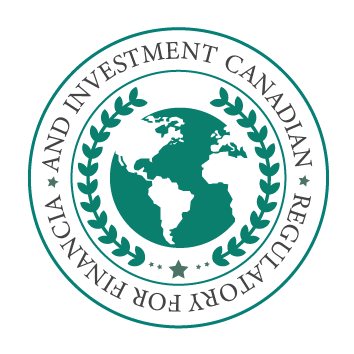
VISION, MISSION & RESPONSIBILITIES
CARFIS is a self-sufficient public regulatory body responsible for monitoring the investment services market, transactions involving transferable securities in Canada, as well as the collective investment and asset management sectors. It also supervises companies offering administrative services beyond its main jurisdiction, in collaboration with the Canadian Bar Association, and oversees Crypto-Asset Services Providers (CASPs).

VISION
The vision of CARFIS is to make the European securities market one of the safest, most dependable, and appealing investment destinations.
VISION
The vision of CARFIS is to make the European securities market one of the safest, most dependable, and appealing investment destinations.
MISSION
The mission of CARFIS is to provide effective oversight to safeguard investors and promote the healthy growth of the securities market.
MISSION
The mission of CARFIS is to provide effective oversight to safeguard investors and promote the healthy growth of the securities market.
Responsibilities
The primary duties and responsibilities of CARFIS are outlined in the Organization of the Securities and Exchange Commission and other Related Matters (L73(I)/2009).
Responsibilities
The primary duties and responsibilities of CARFIS are outlined in the Organization of the Securities and Exchange Commission and other Related Matters (L73(I)/2009).
POLICY
Our responsibilities cover a wide range of regulated entities, each operating in distinct subsectors of the financial industry and offering services to various types of retail clients.
POLICY
Our responsibilities cover a wide range of regulated entities, each operating in distinct subsectors of the financial industry and offering services to various types of retail clients.
Follow the process and obtain your trading license.
With the growing number of new brokerage firms, always verify their license.
WHAT IS FINANCIAL REGULATION?
A financial regulator is an entity, either government or non-government, that oversees and regulates the financial activities of companies within its jurisdiction.
Financial regulators typically have varied roles based on their area of focus. Some oversee securities trading, others monitor banking activities, while others regulate the Forex market, among other sectors. In this context, we will explore the general principles guiding the activities of financial regulators.
When a company seeks to obtain a license, it is essentially seeking approval to conduct business. To achieve this, the company must meet various requirements, which can differ depending on the regulator. This is why some financial market participants have more respect for certain regulators than others. Some regulators may issue licenses with a relatively small payment, while others have stringent requirements for businesses to meet.
- Adjusts the criteria for passing Anti-Money Laundering (AML) and Know Your Customer (KYC) procedures;
- Modifies algorithms used to assess the suspiciousness of transactions;
- Demonstrates its financial stability;
- And so on.
The company continues its operations while consistently reporting to the regulator, providing details about bank accounts, transactions, and other relevant activities. If the company breaches any rules, the regulator issues a notification, demanding compliance. Failure to comply results in the revocation of the license. Therefore, when a company is regulated by one or, ideally, multiple reputable and stringent regulators, it signifies reliability. This indicates that the company adheres to current standards and is unlikely to deceive its customers.
Companies often claim to be regulated on their websites, but anyone can make such a claim. To verify, you should visit the official website of the regulator and check if the company in question holds a valid license. Additionally, the regulator plays another key role: if a client feels they have been treated unfairly, they can file a complaint with the regulator. This is why it’s recommended to work with companies regulated in your own country. In Russia, the financial regulator is the Central Bank. Whether the company is Russian or foreign, if it is regulated by the Central Bank of the Russian Federation, it is obligated to report to the regulator, providing all necessary information. If you experience issues, like unprocessed withdrawals, you can safely lodge a complaint with the Central Bank.
Regulators also have other important roles, such as educational functions. They may initiate programs aimed at enhancing financial literacy among the public or conduct studies and surveys to better understand market trends and behaviors.





Protect. Search. Investigate.
Start a conversation:
Find our address:
123 Main Street
Toronto, ON M5G 1X6
Canada

